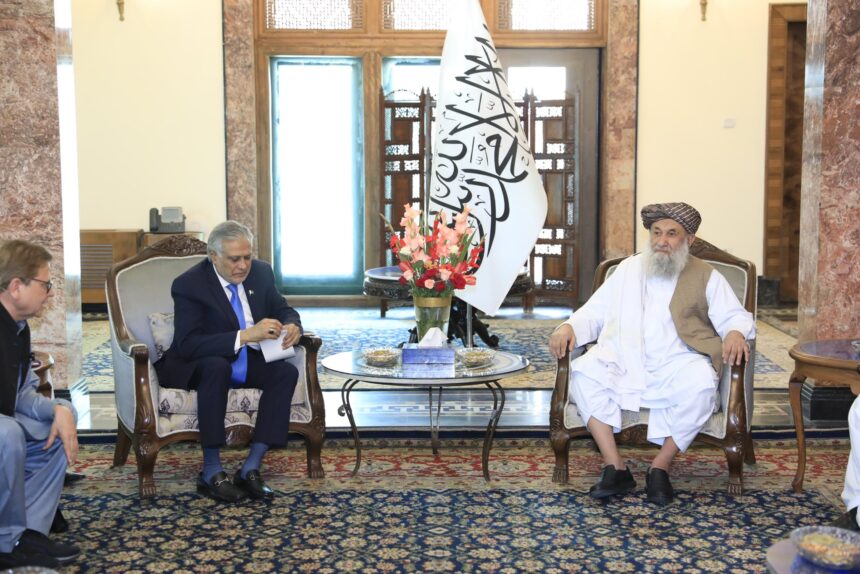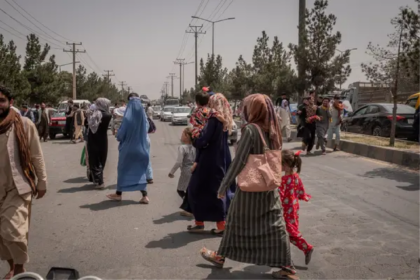RASC News Agency: In a rare public rebuke, Shafqat Ali Khan, spokesperson for Pakistan’s Ministry of Foreign Affairs, dismissed recent remarks by Mullah Abdul Latif Mansoor, the Taliban’s acting minister of energy and water, as “contrary to common sense, history, and established realities.” Mansoor had claimed that Pakistan cannot tolerate a strong, centralised government in Afghanistan and that, for Islamabad, there is no real distinction between the Taliban and the former mujahideen. He went further, alleging that Pakistan fears an independent and self-reliant Afghanistan under any leadership. Responding to these accusations, Khan asserted that “no country has as great a stake in Afghanistan’s stability as Pakistan,” while promising to raise the issue directly with Taliban officials. The Pakistani diplomat also revealed plans to upgrade bilateral diplomatic representation to the ambassadorial level and confirmed an upcoming visit to Pakistan by Amir Khan Muttaqi, the Taliban’s acting foreign minister.
While such verbal sparring might appear to reflect genuine discord, many analysts see these episodes as carefully choreographed theatre a performance aimed at projecting an illusion of Taliban autonomy. In reality, the Taliban’s survival, both during their original rise to power in the 1990s and their return in August 2021, has been deeply dependent on Islamabad’s patronage. Numerous political observers argue that Pakistani authorities treat the Taliban leadership much like provincial administrators issuing instructions on what to do, when to act, and how to execute policy. For more than 45 years, Pakistan has enshrined instability and conflict in Afghanistan as a pillar of its so-called “strategic depth” doctrine a security policy designed to exert control over its western neighbour while safeguarding its eastern front against India. For the past three decades, the Taliban have served as one of Islamabad’s most effective instruments in advancing this agenda. Multiple lines of evidence indicate that Pakistan’s intelligence services and military continue to set the Taliban’s operational priorities and even intervene in the micro-management of their governance.
The extent of this control was laid bare in the immediate aftermath of the Taliban’s 2021 takeover of Kabul. Even before several senior Taliban commanders had emerged from their safe havens in Pakistan, Islamabad’s top brass including the then-Director-General of Inter-Services Intelligence (ISI) and the foreign minister arrived in the Afghanistan’s capital. According to credible sources, they played a decisive role in shaping the Taliban’s first cabinet, ensuring key portfolios went to individuals amenable to Pakistan’s strategic interests. Experts contend that the occasional public friction between the two sides is designed primarily to manage domestic audiences in Afghanistan, to maintain the Taliban’s nationalist facade; in Pakistan, to deflect accusations of over-reliance on a pariah regime. One oft-cited flashpoint is the presence of Tehrik-i-Taliban Pakistan (TTP) fighters on Afghanistan’s soil. While some senior Taliban officials in Kabul publicly distance themselves from the TTP’s insurgency in Pakistan, many rank-and-file commanders indoctrinated over decades with the same militant jihadist ideology openly support their cause, framing it as a continuation of religious duty.
Such radical solidarity makes it nearly impossible for the Taliban leadership to restrain TTP activities, even if they wished to. In practice, according to informed security sources, coordination between the Taliban in Kabul and the Pakistani military remains robust. Joint understandings, often unspoken, ensure that cross-border operations by Pakistan in tribal and border regions are conducted with prior knowledge and in some cases, quiet facilitation by Taliban authorities. Ultimately, beneath the rhetorical jabs and media posturing lies an enduring reality: the Pakistan–Taliban bond is not one of equals, but of patron and proxy. The Taliban’s claims of sovereign independence ring hollow when measured against decades of dependency, deep operational subordination, and the enduring imprint of Pakistani influence on Afghanistan’s political and security landscape.






